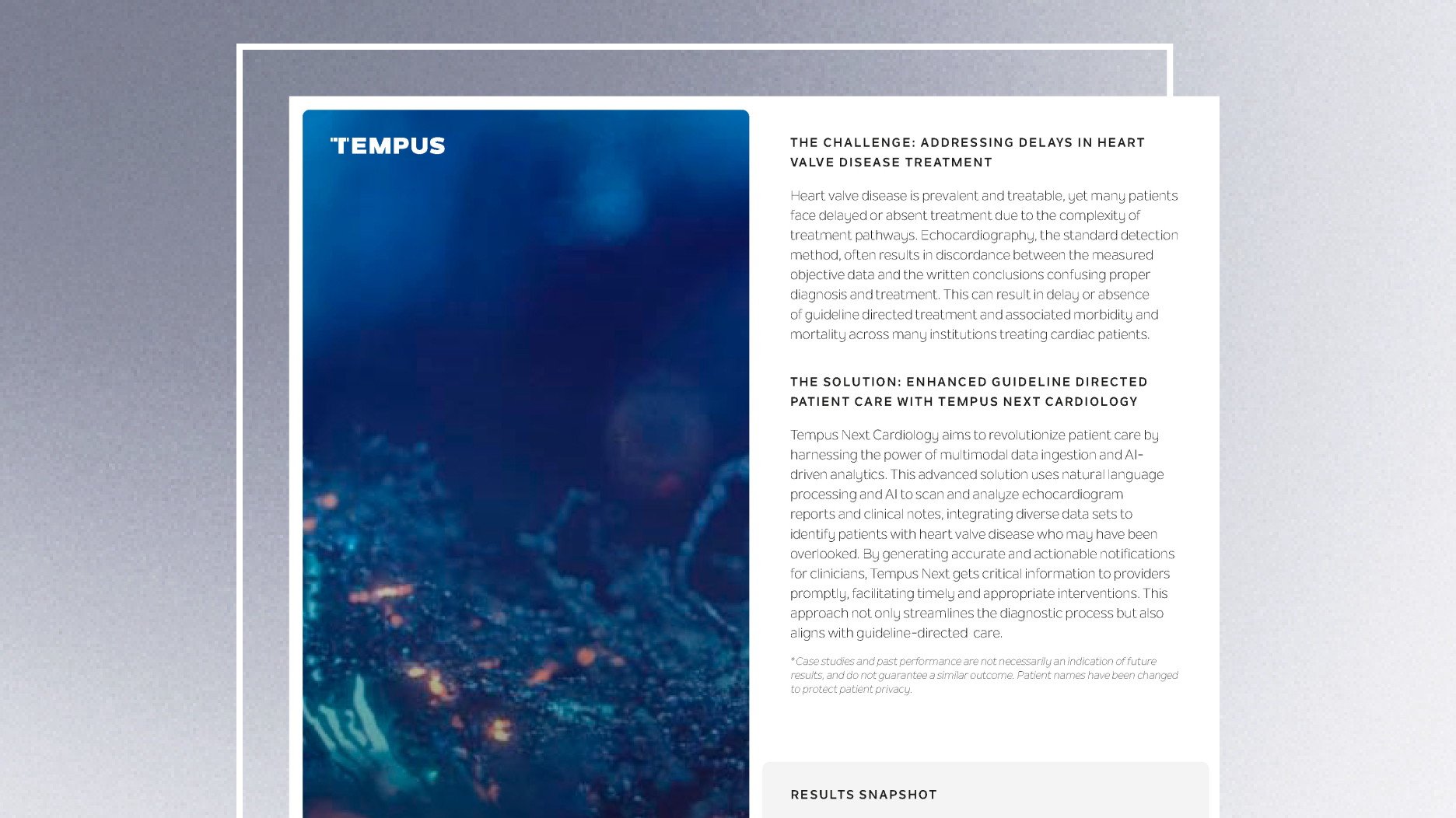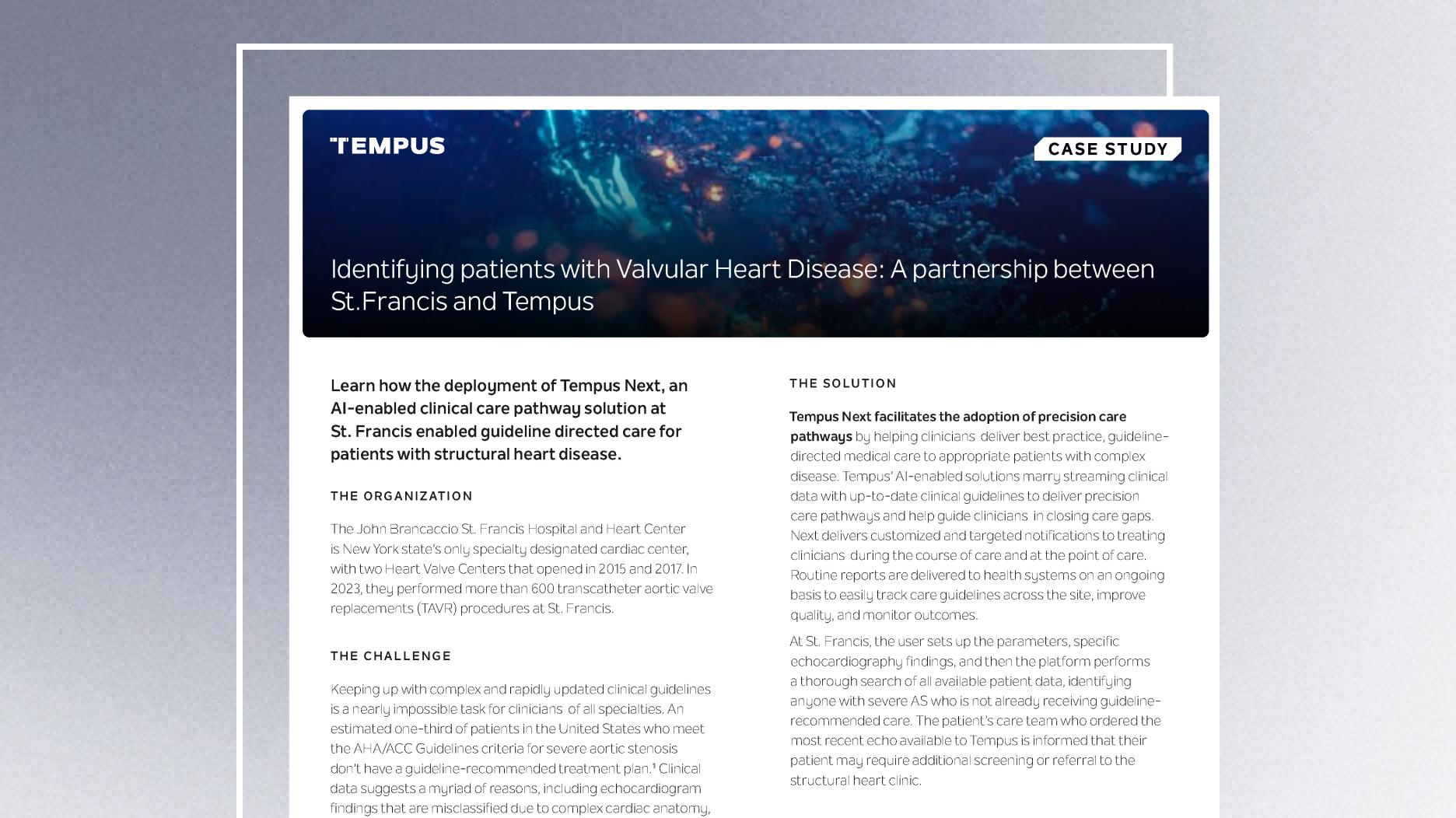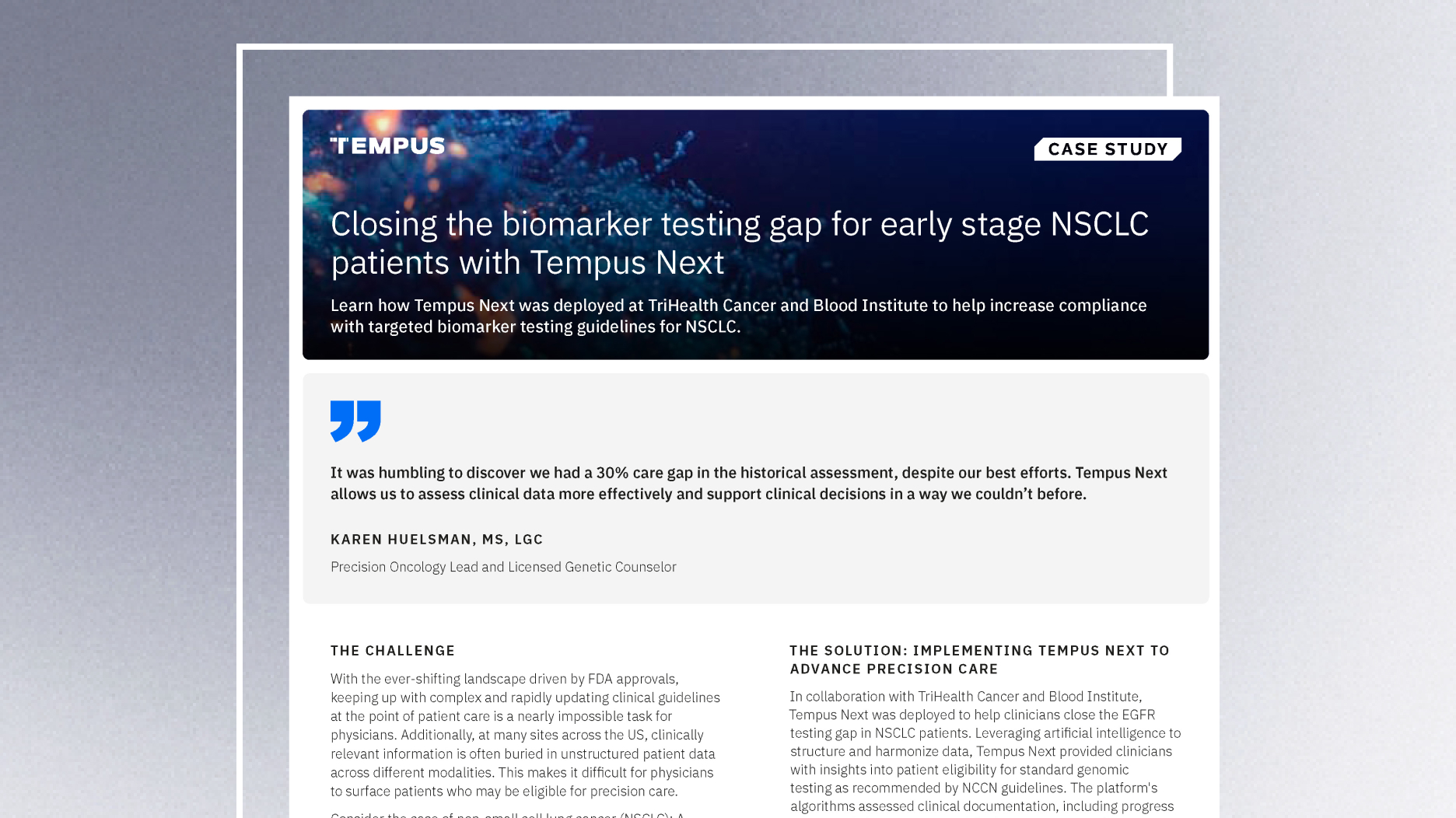-
PROVIDERS
Watch now
Are you getting the full picture? A webinar series on the power of comprehensive intelligent diagnostics
-
LIFE SCIENCES
REGISTER NOW
Closing Care Gaps with AI: The Next Competitive Edge in Pharma
Monday, July 14
9am PT, 11am CT, 12pm ET -
PATIENTS
It's About Time
View the Tempus vision.
- RESOURCES
-
ABOUT US
View Job Postings
We’re looking for people who can change the world.
- INVESTORS
05/17/2023
Validation of Tempus’ measurement of tumor mutational burden using real-world data
Tempus leveraged its multimodal real-world database to demonstrate its measurement of TMB was predictive of response to immunotherapy
Authors
Charu Aggarwal
Rotem Ben-Shachar
Yinjie Gao
Seung Won Hyun
Zachary Rivers
Carrie Epstein
Kristiyana Kaneva
Chithra Sangli
Halla Nimeiri
Jyoti Patel
Rotem Ben-Shachar
Yinjie Gao
Seung Won Hyun
Zachary Rivers
Carrie Epstein
Kristiyana Kaneva
Chithra Sangli
Halla Nimeiri
Jyoti Patel
Tumor mutational burden (TMB), defined as the total number of somatic mutations per defined region of a tumor genome, is a pan-tumor predictive biomarker for immune checkpoint inhibitor (ICI) response in patients with advanced cancer. Despite showing promise as a biomarker for ICI outcomes, previous studies like the KEYNOTE-158 study have shown mixed results in the association of TMB and clinical benefit in ICI-treated patients in clinical trials1. There is also significant variety in approaches towards TMB measurement and a lack of TMB-threshold standardization across the industry2. Few studies have evaluated the association of TMB and clinical outcomes among diverse cancer types in a large cohort of patients representative of routine clinical care. Thus, Tempus sought to use its multimodal clinicogenomic database to conduct a prospectively-planned, retrospective study of the association between TMB status and outcomes for patients on immunotherapy.
Our research team identified 674 patients in its database who received tissue sequencing through Tempus between 2018 and 2022 that were diagnosed with metastatic or stage IV disease with one of 8 different cancer types (head and neck squamous cell carcinoma, melanoma, and non-small cell lung, bladder, colorectal, gastric, endometrial, and cervical cancers). Additionally, all 674 patients were treated with an FDA-approved immunotherapy in the first- or second-line (1L or 2L) setting. The study demonstrated that TMB-high cancers were significantly associated with longer overall survival than TMB-low cancers: TMB-high cancers had a median overall survival (mOS) of 17.3 months compared to 12.7 months for TMB-low cancers. This study demonstrated that TMB as measured by the Tempus xT test can be predictive of patient outcome on immunotherapy in the 1L or 2L setting and reinforced the test’s value to inform clinical decision making. Additionally, the results of this study demonstrate that Tempus’ multimodal clinicogenomic database can be used for the assessment of evolving molecular biomarkers and clinical outcomes in diverse clinical settings.
Click here to read the full manuscript, or visit tempus.com/oncology/genomic-profiling/ to learn more about the Tempus xT test.
1. Marabelle A, Fakih M, Lopez J, et al. Association of tumour mutational burden with outcomes in patients with advanced solid tumours treated with pembrolizumab: prospective biomarker analysis of the multicohort, open-label, phase 2 KEYNOTE-158 study. Lancet Oncol. 2020;21(10):1353-1365. doi:10.1016/S1470-2045(20)30445-9
2. Vega DM, Yee LM, McShane LM, et al. Aligning tumor mutational burden (TMB) quantification across diagnostic platforms: phase II of the Friends of Cancer Research TMB Harmonization Project. Ann Oncol. 2021;32(12):1626-1636. doi:10.1016/j.annonc.2021.09.016
-
06/25/2024
Revolutionizing Cardiac Care: AI-driven detection and treatment of critical heart valve disease at Boulder Community Health
Discover how Tempus Next's AI-powered care pathway platform transformed patient outcomes by helping ensure timely, guideline-directed treatment for critical heart valve disease at Boulder Community Health
Read more -
04/15/2024
Identifying patients with Valvular Heart Disease: A partnership between St.Francis and Tempus
Learn how the deployment of Tempus Next, an AI-enabled clinical care pathway solution at St. Francis enabled guideline directed care for patients with structural heart disease.
Read more -
04/15/2024
Closing the biomarker testing gap for early stage NSCLC patients with Tempus Next
Learn how Tempus Next was deployed at TriHealth Cancer and Blood Institute in Cincinnati, Ohio to surface and close gaps in biomarker testing for NSCLC patients.
Read more


